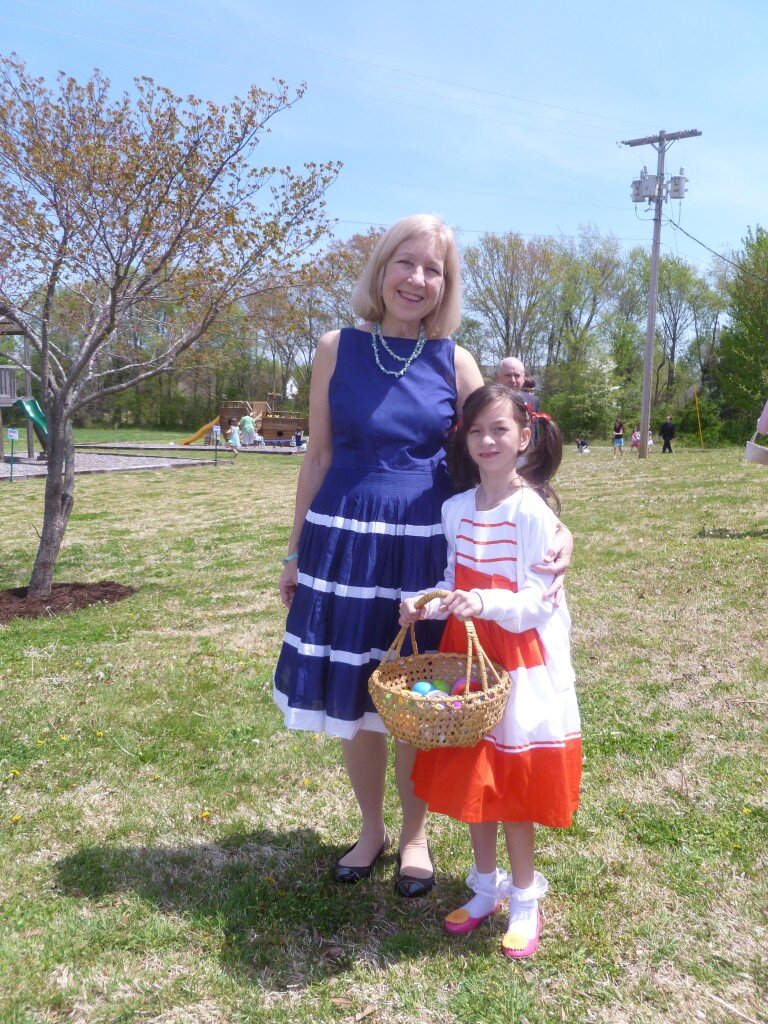Creeping towards the end
I'm seated on my daughter's bed, tired beyond tired, trying to get in my last social media assignment before the midnight deadline. Not that the instructor is watching; rumor is that the on-campus students (my class was part online and part in person) got to have a party at her house. Maybe they are still partying? Not I: I am trying to get my 9-year-old to sleep. The last party I was at was at a professor's home in Boulder during that conference I spoke at @the University of Colorado. The desserts and tables groaning with food were to die for but I was exhausted and simply not in the mood to chat with anyone. Parties are nice if you know lots of people there. I did not. It's been ages since I've been at a party I enjoyed. But I digress: This week’s topic is curation; that is, how you as a user of social media gather interesting posts and forward them onto your friends and contacts. How do I curate info? All of my life, I’ve taken news and information I’ve heard from people at the edges and made it mainstream. For instance, there are groups that deserve a voice, but they’re not going to have much of one unless a reporter discovers them and puts them on the map. The most prominent example of my doing that was my April 2012 Wall Street Journal piece on Andrew Hamblin, the 21-year-old Facebook-using Pentecostal serpent handler. The article truly put him on the map and brought reality shows and tons of other media to his door. I do some curation through my Facebook account when I see articles that are stuck in some lonely web site that need to be brought to the attention of my friends. I’m beginning to do some serious marshaling of facts and links for my singles adoption blog. The latter demands new material every week and it’s such an unusual topic, I basically ‘own’ it. This week’s post is unusual in that I’m publicizing my radio appearance this Saturday but last week I curated a lot in terms of orphan hosting programs that are available for singles.However, the curation talked about by these sites is way beyond what I’ve done. Sites like Storify, Scoop.it, Pearltrees, and Paper.li are aggregation collections. I have tried Storify and found it a bit clunky. Which probably says more about my emerging tech skills than Storify itself because others manage to make it work. The last three on the list are the most interesting but I do wonder about copyright issues: Can people just repeat content without paying for it? As I’ve found out with the adoption blog, creating content (or arranging others’ content) is a ton of work.
But I digress: This week’s topic is curation; that is, how you as a user of social media gather interesting posts and forward them onto your friends and contacts. How do I curate info? All of my life, I’ve taken news and information I’ve heard from people at the edges and made it mainstream. For instance, there are groups that deserve a voice, but they’re not going to have much of one unless a reporter discovers them and puts them on the map. The most prominent example of my doing that was my April 2012 Wall Street Journal piece on Andrew Hamblin, the 21-year-old Facebook-using Pentecostal serpent handler. The article truly put him on the map and brought reality shows and tons of other media to his door. I do some curation through my Facebook account when I see articles that are stuck in some lonely web site that need to be brought to the attention of my friends. I’m beginning to do some serious marshaling of facts and links for my singles adoption blog. The latter demands new material every week and it’s such an unusual topic, I basically ‘own’ it. This week’s post is unusual in that I’m publicizing my radio appearance this Saturday but last week I curated a lot in terms of orphan hosting programs that are available for singles.However, the curation talked about by these sites is way beyond what I’ve done. Sites like Storify, Scoop.it, Pearltrees, and Paper.li are aggregation collections. I have tried Storify and found it a bit clunky. Which probably says more about my emerging tech skills than Storify itself because others manage to make it work. The last three on the list are the most interesting but I do wonder about copyright issues: Can people just repeat content without paying for it? As I’ve found out with the adoption blog, creating content (or arranging others’ content) is a ton of work. It is gratifying to writing about something very specific that no one else is doing but at the same time, the number of readers interested in my topic can be sparse. For instance, I’d like to situate myself in a cool city like Seattle or Albuquerque, then start a site and blog that covers religion in that city. The Religion Newswriters Association recently tried that with writers in five small cities where there is no religion coverage. Sadly, they’re giving up the sites because they could not find the funding to continue them past this spring. So I am not kidding myself that there is little money in this sort of thing. One of my friends, Tracy Simmons, whose site in Spokane will be left high and dry when the RNA pulls out is trying to figure out how she can make a living off her site. She just bought a house, so this is a desperate situation for her. If you read this Andy Carvin interview (about how he's built a following with tweets about Tunisia), notice that he works full time for NPR. Most of us don’t have the spare time to do what he gets paid to do.But, as one of our assigned readings said, we are moving from a content economy to a link economy whereby the info you gather is worth as much is as valuable as what you write. This post comments that we should not pay news outlets for access to their content but they should pay us for linking to them. That is so ridiculous, I don’t even know where to start with the critique. It takes me half a minute to do a link. It takes a reporter many hours, maybe days to put together a story. Sure there are places that don’t charge for their content but you get what you pay for: Tons of unbelievably obnoxious 30-second video ads to sit through.(See below for the end of this post)
It is gratifying to writing about something very specific that no one else is doing but at the same time, the number of readers interested in my topic can be sparse. For instance, I’d like to situate myself in a cool city like Seattle or Albuquerque, then start a site and blog that covers religion in that city. The Religion Newswriters Association recently tried that with writers in five small cities where there is no religion coverage. Sadly, they’re giving up the sites because they could not find the funding to continue them past this spring. So I am not kidding myself that there is little money in this sort of thing. One of my friends, Tracy Simmons, whose site in Spokane will be left high and dry when the RNA pulls out is trying to figure out how she can make a living off her site. She just bought a house, so this is a desperate situation for her. If you read this Andy Carvin interview (about how he's built a following with tweets about Tunisia), notice that he works full time for NPR. Most of us don’t have the spare time to do what he gets paid to do.But, as one of our assigned readings said, we are moving from a content economy to a link economy whereby the info you gather is worth as much is as valuable as what you write. This post comments that we should not pay news outlets for access to their content but they should pay us for linking to them. That is so ridiculous, I don’t even know where to start with the critique. It takes me half a minute to do a link. It takes a reporter many hours, maybe days to put together a story. Sure there are places that don’t charge for their content but you get what you pay for: Tons of unbelievably obnoxious 30-second video ads to sit through.(See below for the end of this post) I will continue blogging on this site, but this is my last post for the social media class. While trolling the Internet, I found this fascinating post on he said-she said journalism; that is, when a reporter has little time beyond researching the basic facts of the story, he or she ends up just repeating what people say without analyzing or explaining anything. My local Gannett paper - with a skeletal staff - does exactly that. With reporters expected to put out a blizzard of posts, blogs and articles each day, who has the time to do more? And so good journalism vanishes. And lastly, a good speech called the Tigger Talk given by someone who's been through the mill and hopes those younger than he do not repeat his mistakes. This observation he gives is so true: Life isn’t about big events. Life is about small events. Very tiny, small events that happen thousands of times a day. Events that don’t even appear to be strung together. Yet these events – these decisions – add up over time and become the sum of our person.
I will continue blogging on this site, but this is my last post for the social media class. While trolling the Internet, I found this fascinating post on he said-she said journalism; that is, when a reporter has little time beyond researching the basic facts of the story, he or she ends up just repeating what people say without analyzing or explaining anything. My local Gannett paper - with a skeletal staff - does exactly that. With reporters expected to put out a blizzard of posts, blogs and articles each day, who has the time to do more? And so good journalism vanishes. And lastly, a good speech called the Tigger Talk given by someone who's been through the mill and hopes those younger than he do not repeat his mistakes. This observation he gives is so true: Life isn’t about big events. Life is about small events. Very tiny, small events that happen thousands of times a day. Events that don’t even appear to be strung together. Yet these events – these decisions – add up over time and become the sum of our person.